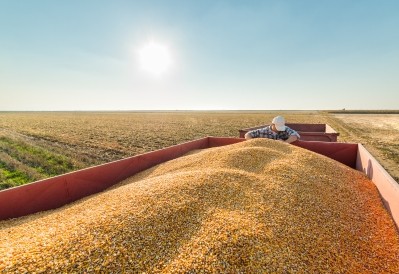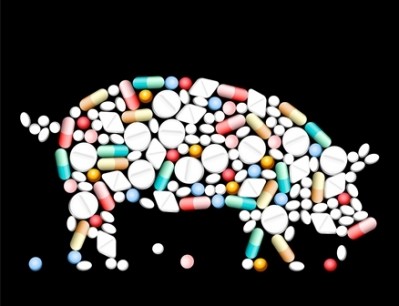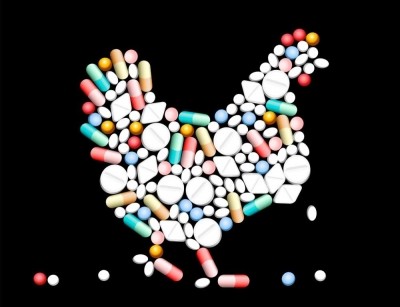USDA seeks improved understanding of in-feed antimicrobial use

APHIS (Animal and Plant Health Inspection Service) Veterinary Services’ National Animal Health Monitoring System (NAHMS) launched the studies in conjunction with the National Agricultural Statistics Service (NASS).
The work focuses on antimicrobial use and stewardship practices at both beef and swine facilities, said a USDA spokesperson
The trials will focus on providing information to set a baseline for the use of antimicrobial products before the change in US Food and Drug Administration (FDA) policy, said a spokesperson with the USDA. “These activities will add to our understanding of antimicrobial use in veterinary medicine and animal agriculture, especially as they relate to judicious use and stewardship,” she added.
“These studies represent a new data collection and reporting effort for NAHMS and were first proposed in the USDA’s Antimicrobial Resistance Action Plan released in 2015,” the spokesperson told FeedNavigator. “This plan specifically called for enhanced monitoring of antimicrobial use in food-producing animals.”
“The 2017 studies will gather information on antimicrobial-use practices in 2016, before implementation of FDA policy changes,” the spokesperson said.
Both studies are set to run from May through August, said the US Department of Agriculture (USDA). Work with data collection for both feedlots and swine facilities is expected to be repeated biennially.
Feedlot and swine data specifics
The feedlot project will look to describe how antimicrobials are used in feed and water in facilities that have at least 50 animals, the department said. And, establish better estimates for the percentage of feedlots using, or cattle receiving, a specific antimicrobial in feed or water.
In swine, the data collection project is expected to cover how and when antimicrobial products are used in feed or water at facilities with at least 1,000 weaned pigs, the department said. And, to allow for estimates to be made regarding both the amount of production sites using a specific antimicrobial along with the percentage of weaned market pigs receiving different products and why they were used.
However, the data collected will be used for statistic purposes and only summary estimates will be reported, the department said.
“This baseline can be used for evaluating trends over time,” the spokesperson said.
Intended benefits
The data collection projects are intended to bring several benefits to the US beef and swine industries, said the USDA.
“The information on antimicrobial-use practices gathered through these studies will provide transparency to consumers and others regarding why antimicrobials are used in feed and/or water,” said the spokesperson. “The studies will also describe antimicrobial stewardship practices, providing a national snapshot of things like recordkeeping related to antimicrobial use and whether a veterinarian was consulted when making the decision to use antimicrobials.”
Additionally, they will offer a look at the overall percentage of facilities that may use a specific antimicrobial product in feed or water, the spokesperson said.
For beef producers the data produced is designed to generate information on practices involving the use of antimicrobials products and allow for improved transparency for consumers and others on why the produces were used in cattle feed or water, said the department.
In addition to providing more information for stakeholders interested in why antimicrobial products are being added to swine feed or water, the study details will offer information on practices and expert involvement, the department said.
Study timeline
Study participants from feedlots with at least 50 animals stem from 14 states ranging from west coast states, like California, Washington and Oregon, east into Pennsylvania, said the USDA. Participating producers will be asked to provide information regarding their stewardship practices and antimicrobial use.
Participants from swine nursery and grower-finisher operations will be selected from a 13-state region, including Utah, Nebraska, Kansas, Iowa, Illinois and North Carolina, said the department. Similarly, they will be asked about their use of antimicrobial products and stewardship habits.
In May, work on the studies started by asking producers meeting the criteria to take part, said the department. Starting in July, in-person interviews are set to be scheduled and data collection is expected to be complete by August.







